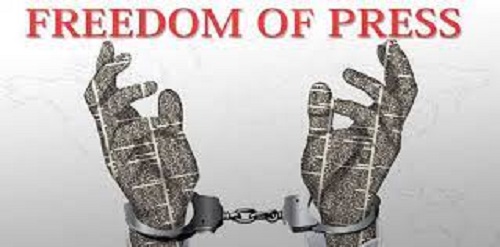A long-anticipated change to the Prevention of Electronic Crimes Act, PECA (2016), was brought in through a presidential ordinance, which shows the government’s desperate desire to prohibit other parliamentary parties from discussing “a legislation” that has direct effects on political expression.
Through Presidential intervention, the PTI government’s intention is to expand the scope of the Prevention of Electronic Crimes Act, 2016 (PECA) amended ordinance to include all government-created corporations, organisations, and other entities.
The modified act includes both incorporated and non-incorporated bodies of individuals, as well as government bodies made up by law or otherwise. This amendment’s inclusion of such minute information illustrates how seriously this administration takes attempts to stifle criticism of its policies.
An important operational aspect of the ordinance is that any government organisation or informal loosely formed committee can file an appeal under Section 20 of the Prevention of Electronic Crimes Act (PECA) on the objection of a speech subject that the government considers to be “malicious” and that it believes threatens the reputation or privacy of that body. It would also become a non-bailable and cognisable offence.
The Joint Action Committee has rejected what it calls the “Draconian PECA modifications.”
Before the change, Section 20 was a bailable offence that could only be filed by people.
Naya Pakistan has a new law that makes it possible to be prosecuted and imprisoned for up to five years if you tweet against a government official, a body, or a decision unfavourably.
It is necessary, of course, that the information on which your critique is based be ‘false’.
PECA does not distinguish between factual reporting and editorial commentary, since editorial commentary, by definition, is both subjective and interpretive.
On top of all of that, this administration and its officials have often rejected or yelled “fake news” when reports were later found to be accurate throughout its existence. ‘Truth,’ throughout the previous several years, has been a curious beast that changes shape with time and environment.
Sections 499 and 500 of the Pakistan Penal Code and the Defamation Ordinance 2002 already criminalise defamatory false statements, creating both criminal and civil liability for defamatory conduct.
The FIA has not released the actual number of proceedings under Section 20 of PECA that have been launched, but the instances made public by the accused focus mostly on journalists and civil society activists.
Athar Minallah, the Chief Justice of the IHC, said in a case involving journalist Asad Toor that “if authorities started taking action against defamation, then this process will not end at anything. There would be no room for democratic conversation if authorities could yell defamation at every speech, journalistic or otherwise, that offends them and brings them under attack.” The judge’s words sum up the problem with the government’s attitude.
The government and its agencies must be aware of the enormous power disparity that exists between public and private entities. Criticism is a necessary component of a democratic system and should not be suppressed.
Section 44A, which has been added to the statute because of the amendments, is particularly intriguing. Trial courts are required by this clause to complete cases within six months and to provide “monthly updates” to the high courts on the progress they have made. To ensure that the high court follows the procedure outlined below, a trial court must explain why a matter cannot be resolved within the timeframe specified.
Efficacy and speed in the administration of justice are also pushed in this excessively paternalistic approach, so should we welcome it? Are online criticism cases that simple?
Cybercrime complaints under PECA have increased from 1,600 in 2016 to 72,000 in 2019, according to a report from the Federal Investigative Agency (FIA), the primary PECA investigator. There were 95 complaints per investigator every month in 2019, according to the FIA data.
FIA also highlighted additional issues, such as a lack of training and capacity growth. FIA’s workload will grow tremendously because of the proposed revisions, making it impossible to conduct a fair and effective inquiry.
When it comes to arresting someone accused of the sort of speech that has been criminalised under PECA, 2016, the FIA moves at breakneck speed, as we saw recently with the arrest of Mohsin Baig.
Pakistan’s ruling party, the PTI, appears to have lost any political foresight and is attempting to construct a legal framework that would make it increasingly impossible for anyone to be critical of those in power. But the current government has to remember that politics is a dynamic game, and no party ever stays in power for long.
Works at The Truth International Magazine. My area of interest includes international relations, peace & conflict studies, qualitative & quantitative research in social sciences, and world politics. Reach@ [email protected]










